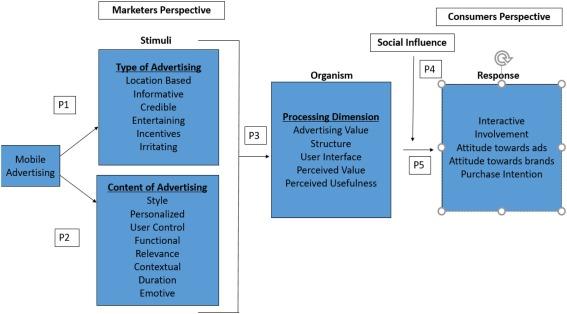How Schools Can Prepare Students for Future-Ready Careers
In today’s fast-evolving world, preparing students for future-ready careers is both a duty and an prospect for educational institutions. With the continuous advancement of technology and changing job market dynamics, schools play a pivotal role in shaping students’ abilities, confidence, and adaptability. This article explores how schools can empower learners with the skills and knowledge necessary for success in tomorrow’s workforce.
Why Future-Ready Careers Matter in Education
The concept of future-ready careers refers to professions that are dynamic,innovative,and resilient to market changes. As automation, AI, and globalization transform the job landscape, schools must go beyond customary approaches to education and nurture students who can thrive in uncertain environments. By fostering practical skills, technical proficiency, and emotional intelligence, schools set the foundation for lifelong success.
Key Benefits of Preparing Students for Future-Ready Careers
- Enhanced Employability: students gain skills aligned with current and emerging industry needs.
- Adaptability: Learners develop strategies to navigate evolving workplaces and career paths.
- Innovation: Schools encourage creativity, problem-solving, and entrepreneurial thinking.
- Personal Fulfillment: Career-ready students pursue meaningful work aligned with their passions and strengths.
- Societal Impact: Educational institutions contribute to a skilled, future-proof workforce for community prosperity.
Essential skills for Future-Ready Students
To equip students for future-ready careers, schools must focus on teaching a blend of hard and soft skills. These include:
- Critical Thinking & Problem solving
- Collaboration & Teamwork
- Effective Dialogue
- Digital Literacy & Technical Proficiency
- Creativity & Ethical Decision-Making
- Adaptability & Resilience
- Entrepreneurial Mindset
Each of these skills not only prepares students for jobs that exist today, but also for roles that have yet to be created.
Practical strategies for Schools to Foster Future-Ready Careers
How can schools concretely prepare students for future-focus careers? Here are actionable ways educators and administrators can make a lasting impact:
1. integrate Technology into the Curriculum
- Leverage tools like coding platforms, robotics kits, and virtual labs to enhance learning.
- Encourage safe and responsible online research and collaboration.
- Offer lessons on digital citizenship and cybersecurity basics.
2. Promote Project-Based and Experiential Learning
- Implement hands-on assignments that reflect real-world challenges.
- Foster teamwork through collaborative group projects.
- Support internships, job shadowing, and entrepreneurship programs for direct job market exposure.
3. Embed Social-Emotional Learning (SEL)
- Teach emotional intelligence, resilience, and self-awareness.
- Create a supportive habitat for open dialogue and conflict resolution.
- Help students manage stress, embrace feedback, and learn from failure.
4. Personalize Career Guidance & Mentoring
- Offer one-on-one counseling to match student strengths and interests with future careers.
- Invite guest speakers and industry professionals for insights into emerging fields.
- Provide structured career pathways and guidance on higher education and technical training.
5. Update Curriculum to Reflect Market Trends
- Regularly review course offerings in STEM, digital media, business, and global studies.
- Introduce interdisciplinary modules focusing on sustainability, AI, and data science.
- Encourage continuous professional development for teachers.
Case Study: Future-Ready Education in Action
Let’s look at a real-world example. Horizon Valley School launched a Technology Skills and Entrepreneurship Initiative in 2021. This program:
- partnered with local startups and tech companies for mentorships.
- Added coding and app design classes alongside traditional academics.
- Organized annual innovation fairs where students showcased prototypes and business ideas.
- Implemented regular workshops on digital literacy and online safety.
Results from this initiative:
- Graduates reported increased confidence and workplace preparedness.
- College acceptance rates and internship placements substantially improved.
- Several student projects evolved into community-impact startups.
This case underlines how proactive school leadership and industry partnerships create tangible career readiness benefits for students.
First-Hand Experience: voices from the classroom
“Learning coding and digital design in high school helped me land my first internship before graduation. The support from my teachers made me realize I’m capable of so much more.”
— Sarah, Recent Graduate
“Our project-based classes connected us with professionals from different industries. It opened our eyes to possibilities we never knew existed.”
— Miguel, High School Senior
Direct feedback from students and educators illustrates the profound impact of future-ready educational strategies on motivation, skill-building, and career clarity.
Practical Tips for Schools Seeking to Prepare Students for Future-Ready Careers
- Maintain Industry Connections: Build strong relationships with businesses,tech firms,and higher education institutions for resource sharing and insight.
- Encourage Lifelong Learning: Cultivate a culture that values curiosity, reflection, and upskilling beyond graduation.
- Invest in Faculty Development: Empower teachers with ongoing training in innovative teaching methods and emerging technologies.
- Use Data-Driven Decision Making: Collect and analyze feedback from students, parents, and alumni to inform future curricular changes.
- Prioritize Equity and Inclusion: Design programs that ensure all students—regardless of background—access future-ready opportunities.
Conclusion: Building Pathways to Success
As the world of work becomes more unpredictable and technology-driven, schools must evolve their teaching practices and invest in holistic career preparation. by instilling critical skills, integrating real-world experiences, and building strategic industry connections, educational institutions can empower students to forge triumphant, fulfilling paths in future-ready careers. The journey starts today—by adopting innovative,inclusive approaches to 21st-century education.
Is your school ready to shape the leaders of tomorrow? Start with these strategies and watch your students thrive in the future workforce.
For more resources on future-ready career preparation, subscribe to our newsletter or explore related articles:

